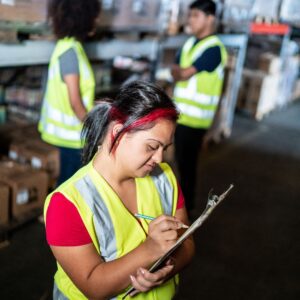The International Labour Organization (ILO), with funding from the Government of Canada, has launched a project to support labour rights and enhance competitiveness in Thailand’s rubber sector and supply chain. Named “Strengthening Fundamental Principles and Rights at Work and Trade Readiness in Thailand,” the three-year initiative was inaugurated on 10 October 2025, bringing together the Ministry of Labour, employers and workers’ organizations, and representatives from Canada and the ILO. The project aims to align Thailand’s labour practices with international standards, a priority in the context of Free Trade Agreements and growing global supply chain demands.
The initiative will focus on strengthening core labour rights across the rubber supply chain, emphasizing freedom of association, collective bargaining, and workplace safety and health. Through training, dialogue, and legal reforms, government, employers, and workers will gain tools to prevent child labour, protect rights, and improve workplace safety. The project also seeks to promote fair pay, support stronger employer and worker organizations, and demonstrate how fair and safe work benefits both employees and businesses.
Samart Pattamasukhon, Deputy Permanent Secretary of the Ministry of Labour, highlighted that the project will strengthen fundamental rights for workers while boosting Thailand’s trade competitiveness. He emphasized that fair treatment of workers increases productivity, fosters positive workplace relationships, and elevates Thailand’s position in the global market, thanks to the cooperation of government, employers, and workers. Canadian officials, including Patty Hajdu and John Zerucelli, stressed that the initiative supports international labour standards and creates fair, safe, and equitable work environments for all.
Representatives from Thailand’s Employers’ Confederation (ECOT) and the International Trade Union Confederation – Thailand Council (ITUC-TC) emphasized the importance of responsible business practices, meaningful social dialogue, and respect for collective bargaining rights. They highlighted that these measures not only protect workers but also strengthen competitiveness, create resilient supply chains, and ensure that economic growth translates into decent work and shared prosperity. Xiaoyan Qian, ILO Director for Thailand, Cambodia, and Lao PDR, noted that the project’s inclusive approach brings practical, on-the-ground solutions to protect workers while enhancing Thailand’s position in global markets.
Thailand is the world’s top producer and exporter of natural rubber, contributing roughly one-third of global output. Its climate supports the full rubber supply chain, from plantations in southern provinces to industrial zones producing tyres, gloves, tubes, and industrial parts. In 2024, rubber and rubber product exports were valued at US$19.22 billion, providing livelihoods for over six million people, including smallholder farmers and factory workers. The ILO-Canada project aims to ensure that this vital industry continues to grow sustainably while protecting the rights and well-being of all workers involved.







